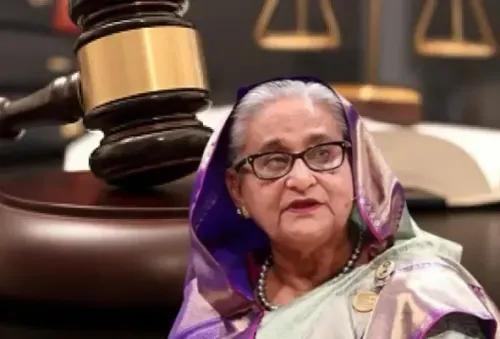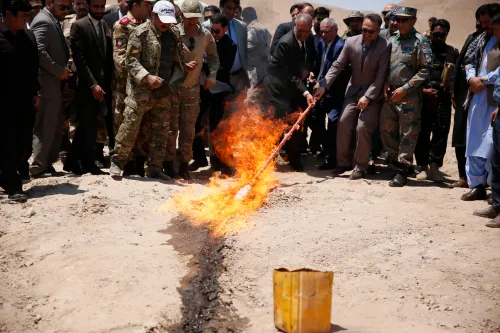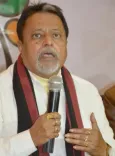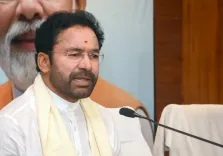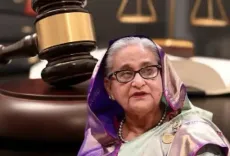Why Is Bangladesh Urging Media to Avoid Reporting on Hasina's Statements?

Synopsis
Key Takeaways
- The National Cyber Security Agency has called for media silence on Sheikh Hasina’s statements.
- Sheikh Hasina was recently sentenced to death for alleged crimes against humanity.
- Concerns about judicial independence and press freedom are being voiced globally.
- Two of Hasina’s aides received convictions in the same trial.
- Journalists demand transparency in the judicial proceedings.
Dhaka, Nov 18 (NationPress) Following the death sentence handed to former Prime Minister Sheikh Hasina, the National Cyber Security Agency of Bangladesh has requested that media outlets abstain from broadcasting statements from the former leader, as reported by local media on Tuesday.
This is perceived as another maneuver by the interim government's Chief Advisor, Mohammad Yunus, aimed at unlawfully stifling the activities of the Awami League and its leader, Sheikh Hasina.
The agency expressed that it is "deeply concerned" about certain media platforms airing remarks from the "convicted fugitive," referring to Hasina.
The NCSA asserted that these statements could contain directives that "might incite violence, disorder and criminal activities."
Although the agency claimed to "respect freedom of the press" and "freedom of expression", it urged media organizations in the country to avoid publishing "statements from convicted individuals" and to be aware of their legal obligations.
In the meantime, hundreds of journalists worldwide have raised significant alarms regarding the verdict against the former Prime Minister, cautioning that the "biased and non-transparent" judicial process of the International Crimes Tribunal (ICT) poses a grave threat to the rule of law in Bangladesh.
This statement followed the ICT’s announcement of a death sentence for the former Prime Minister, citing her guilt on charges of "crimes against humanity" related to the protests in July 2024.
The ICT also sentenced two of Hasina's senior aides, imposing a death sentence on former Home Minister Asaduzzaman Khan Kamal and a five-year prison term on former Inspector General of Police Chowdhury Abdullah Al-Mamun, who became a state witness.
In a joint statement released by 102 journalists from various media outlets both domestically and internationally, concerns about the ongoing judicial proceedings and the recent verdict delivered by the ICT were expressed. This statement, shared by the Awami League on its social media platform, highlighted the troubling environment surrounding the ICT.
The statement read, "In recent weeks, the atmosphere surrounding the ICT has raised serious questions about judicial independence. Statements from various actors, inconsistencies in proceedings, lack of transparency, and evident political influence have collectively eroded public confidence in the trial's impartiality. When the judiciary cannot operate independently, democracy, human rights, and the rule of law are jeopardized."
The signatories demanded the immediate reversal of this verdict and the resumption of all judicial proceedings in a manner that is fully transparent and impartial.
They emphasized that regardless of whether the accused is a political figure or an ordinary citizen, justice must be delivered transparently, impartially, and without pressure. The essentials of due process and neutrality, which were severely lacking in this instance, are fundamental to any fair trial.


